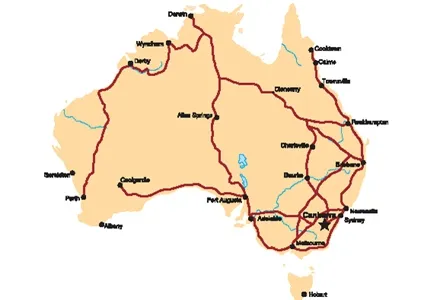THE EBRD (European Bank for Reconstruction and Development) is increasing its support for the modernisation of the transport infrastructure of Bosnia-Herzegovina with a €21 million loan for the completion of the construction of the Banja Luka-Gradiska motorway. The motorway, being built with financing from both the EBRD and the European Investment Bank (EIB), is the first in the Republika Srpska, and links the capital Banja Luka with the international transport Corridor X [a pan- European corridor which run
July 5, 2012
Read time: 2 mins
THE EBRD (1166 European Bank for Reconstruction and Development) is increasing its support for the modernisation of the transport infrastructure of Bosnia-Herzegovina with a €21 million loan for the completion of the construction of the Banja Luka-Gradiska motorway.
The motorway, being built with financing from both the EBRD and the1054 European Investment Bank (EIB), is the first in the Republika Srpska, and links the capital Banja Luka with the international transport Corridor X [a pan- European corridor which runs between Salzburg in Austria and Thessaloniki in Greece, passing through Austria, Slovenia, Croatia, Serbia, Macedonia and Greece].
The EBRD's new sovereign loan will be extended to the Republika Srpska Motorways, a newly-established public company responsible for managing the motorway network. The proceeds of the loan will be used to finance the construction of the Mahovljani Interchange, which will complete the missing link on the Banja Luka-Gradiska motorway. The project will also support a programme of institutional strengthening for this new company.
The project includes the construction of a 1.8km new two-lane motorway, four interchange two-lane slip roads, with a total length of 6.9km, two viaducts, which carry two of the slip roads over the new motorway, and four other bridges within the interchange.
In addition to the EBRD loan, the project is co-financed by €5 million in grant funds provided by the2465 European Commission through its preaccession programme, and €500,000 from the Central European Initiative and the Western Balkans Investment Framework, a joint grant and lending facility established by the European Commission, the European Investment Bank, the EBRD, and the 1172 Council of Europe Development Bank to finance priority projects in the Western Balkans.
The motorway, being built with financing from both the EBRD and the
The EBRD's new sovereign loan will be extended to the Republika Srpska Motorways, a newly-established public company responsible for managing the motorway network. The proceeds of the loan will be used to finance the construction of the Mahovljani Interchange, which will complete the missing link on the Banja Luka-Gradiska motorway. The project will also support a programme of institutional strengthening for this new company.
The project includes the construction of a 1.8km new two-lane motorway, four interchange two-lane slip roads, with a total length of 6.9km, two viaducts, which carry two of the slip roads over the new motorway, and four other bridges within the interchange.
In addition to the EBRD loan, the project is co-financed by €5 million in grant funds provided by the







